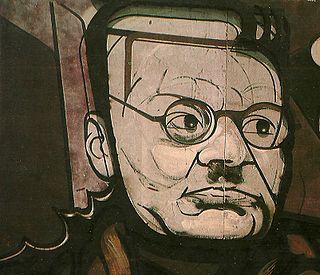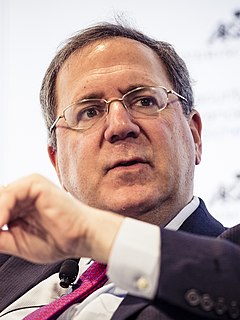A Quote by Jasper Johns
At first I had some idea that the absence of color made the work more physical. Early on I was very involved with the notion of the painting as an object and tended to attack that idea from different directions.
Related Quotes
I love the idea of engaging the object, whether it be architecture or a piece of good graphic design, or a good painting, or piece of sculpture, or even a piece of industrial manufactured object. A piece of engineering can be quite beautiful, too, or a photomicrograph, or a cosmic photograph. We're physical beings and why deny that. So in that sense, it's very sensual to have an object that has the power to communicate some emotion or a state or give you some sense.
The idea of, say, the compressed space between the floor and the object hanging over it and then the long space between the object and the ceiling was a kind of interesting idea for me - the idea of compressing and expanding. That was an idea that I worked with, which you could only do sculpturally. You can't really do with a painting on the wall.
I've always seen process of crafting as part of the thinking process. It really forms the gestation of the work. I'll get an idea; I want to express this idea, sometimes I'll start it, but during the process of making the object - if it's an object or a painting - it changes. It never goes in a linear progression from A to Zed. It's always this kind of circuitous, stumbling, groping in the dark kind of process of evolving.
In every painting, as in any other work of art, there is always an IDEA, never a STORY. The idea is the point of departure, the first cause of the plastic construction, and it is always present all the time as energy creating matter. The stories and other literary associations exist only in the mind of the spectator, the painting acting as the stimulus.
...if photos can reproduce the world more perfectly than any painter, can capture an instant, a look, a gesture, then what makes a painting good anymore? Painting subverts this subversion of its traditional nature by redefining itself - art is idea, not simply skillful execution. So, a work can be crudely made, or even machine made - but it has to be practically and functionally useless.
Now, ideas are the raw material of progress. Everything first takes shape in the form of an idea. But an idea itself is worth nothing. An idea, like a machine, must have power applied to it before it can accomplish anything. The men who have won fame and fortune through having an idea are those who devoted every ounce of their strength and every dollar they could muster to putting it into operation. Ford had a big idea, but he had to sweat and suffer and sacrifice to make it work.
Another problem of fragmentation is that thought divides itself from feeling and from the body. Thought is said to be the mind; we have the notion that it is something abstract or spiritual or immaterial. Then there is the body, which is very physical. And we have emotions, which are perhaps somewhere in between. The idea is that they are all different. That is, we think of them as different. And we experience them as different because we think of them as different.





































